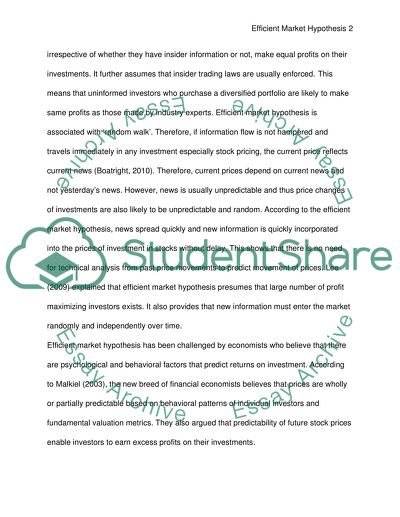Cite this document
(“Efficient Market Hypothesis Essay Example | Topics and Well Written Essays - 1500 words”, n.d.)
Retrieved from https://studentshare.org/finance-accounting/1426737-various-authors-have-contended-that-the-recent
Retrieved from https://studentshare.org/finance-accounting/1426737-various-authors-have-contended-that-the-recent
(Efficient Market Hypothesis Essay Example | Topics and Well Written Essays - 1500 Words)
https://studentshare.org/finance-accounting/1426737-various-authors-have-contended-that-the-recent.
https://studentshare.org/finance-accounting/1426737-various-authors-have-contended-that-the-recent.
“Efficient Market Hypothesis Essay Example | Topics and Well Written Essays - 1500 Words”, n.d. https://studentshare.org/finance-accounting/1426737-various-authors-have-contended-that-the-recent.


